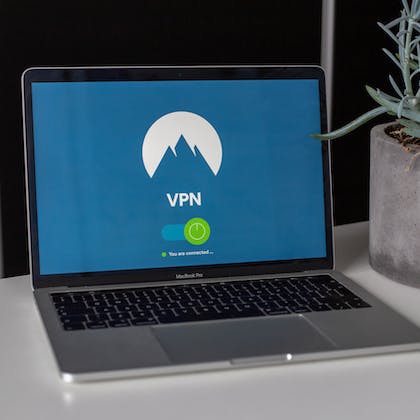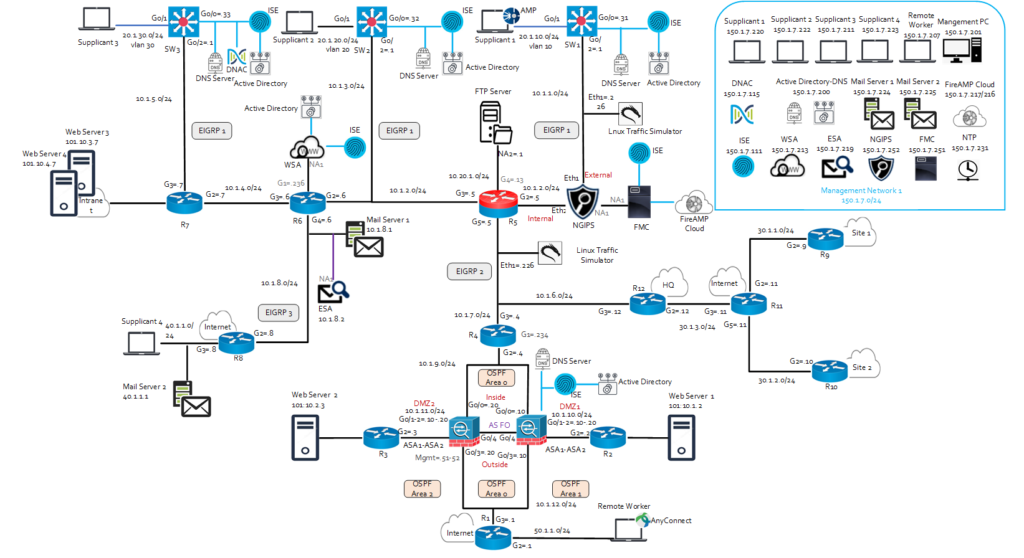

EXPLORE.PERSIST.MASTER.
Microsoft Azure Administrator Training.
Share :
+971 43346660
Azure Administrator Associate is one of the flagship courses in cloud administrator roadmap in IP Rulers cloud portfolio. This course will provide a deep understanding of each service across its full IT lifecycle allowing Azure Administrators to take requests for infrastructure services, applications and environments. After completing the course, Azure Administrators will also be able to make recommendations on services to use for optimal performance and scale, as well as provision, size, monitor, and adjust resources as appropriate. From Expert trainers of IP Rulers you will acquire a thorough knowledge in deep understanding of the entire administrative lifecycle in Azure environments. This course teaches IT Professionals how to secure identities, manage their Azure subscriptions, administer the infrastructure, configure virtual networking, connect Azure and on-premises sites, manage network traffic, implement storage solutions, create and scale virtual machines, implement web apps and containers, back up and share data, and monitor your solution.
Candidates for this exam should have subject matter expertise implementing, managing, and monitoring an organization’s Microsoft Azure environment. Responsibilities for an Azure Administrator include implementing, managing, and monitoring identity, governance, storage, compute, and virtual networks in a cloud environment, plus provision, size, monitor, and adjust resources, when needed. In a nutshell, from IP Rulers (Dubai) you will learn all there is to know to be confident when taking the Microsoft Azure Administrator exams
Required exam – AZ:104 (Microsoft Azure Administrator )
The AZ-104 exam replaces the AZ-103 exam, which will be retired on August 31, 2020. This exam is part of Microsoft’s role-based certification program. Candidates who pass the AZ-104 exam will earn the Microsoft Certified: Azure Administrator Associate certification.
This exam measures your ability to accomplish the following technical tasks: manage Azure identities and governance; implement and manage storage; deploy and manage Azure compute resources; configure and manage virtual networking; and monitor and back up Azure resources.Candidates for this exam should have subject matter expertise implementing, managing, and monitoring an organization’s Microsoft Azure environment.
Target Audience
- IT Engineers who aims to become Azure administrators
- Candidates preparing for Microsoft’s AZ-104 exam
- IT professionals who works for organizations that are planning to locate some or all of their infrastructure services on Azure
- Also intended for people who works with cloud-based solutions and services.
- Candidates who are looking to validate their knowledge level in cloud Administration.
- Individuals involved in selling or purchasing cloud-based solutions and services.
- IT managers, Program managers, IT Administrator or System Administrators, who likes to enhance their knowledge in Cloud Technology.
Prerequisite
There are no pre-requisites for AZ:104 Azure Administrator Associate training sessions as such. But recommends the candidates to grasp basic knowledge through IP Rulers course – “Microsoft Azure fundamentals” or candidate with minimum 6months of hands-on experience administering Azure
- Expertise skills in cloud computing concepts in the fast changing world of technology cloud computing concepts
- Ability to recognize customer requirements and implement proposed solutions of Cloud.
- Enhanced job opportunities related with core services available with Microsoft Azure
- You will be able to demonstrate a strong knowledge of cloud concepts, as well as Azure services, workloads, security, privacy, pricing, and support.
- Training will give the IT professionals a deep understanding of Azure cloud services and how to make the most of them
- Also appropriate for technical students who need to explore and create services in the Azure portal.
- Great target for new or aspiring Azure administrators to be mastery of Microsoft cloud products.
- Azure Administrator training is considered professional-level Microsoft training, which means it was designed for Azure administrators.
Duration
40 Hours
Skill Level
Intermediate
Certificate
Yes
Modules
5
Language
English
Mode
Online/Offline
Key Highlights
- Live Instructor-Led Training (Online & Classroom)
- 40 Hours of Technology Lectures
- Weekdays (Tue - Fri)
- Weekend (Fri-Sat or Sat-Sun)
- Real World Live Scenarios and Migrations
- Exam question bank and Preparation
Key Highlights
- 100% Pass Guarantee
- 24/7 Access to the Learning Resources
- Hands-on Lab Practice on physical equipment
- Flexible Installment Plans
- Boot Camp Training for a Fast Track Learning
- Demand-driven recorded video lectures for references
Course Curriculam
1.1 Manage Azure AD objects
- create users and groups
- manage user and group properties
- manage device settings
- perform bulk user updates
- manage guest accounts
- configure Azure AD Join
- configure self-service password reset
- NOT: Azure AD Connect; PIM
1.2 Manage role-based access control (RBAC)
- create a custom role
- provide access to Azure resources by assigning roles
- interpret access assignments
- manage multiple directories
1.3 Manage subscriptions and governance
- configure Azure policies
- configure resource locks
- apply tags
- create and manage resource groups
- manage subscriptions
- configure Cost Management
- configure management groups
2.1 Manage storage accounts
- configure network access to storage accounts
- create and configure storage accounts
- generate shared access signature
- manage access keys
- implement Azure storage replication
- configure Azure AD Authentication for a storage account
2.2 Manage data in Azure Storage
- export from Azure job
- import into Azure job
- install and use Azure Storage Explorer
- copy data by using AZCopy
2.3 Configure Azure files and Azure blob storage
- create an Azure file share
- create and configure Azure File Sync service
- configure Azure blob storage
- configure storage tiers for Azure blobs
3.1 Configure VMs for high availability and scalability
- configure high availability
- deploy and configure scale sets
3.2 Automate deployment and configuration of VMs
- modify Azure Resource Manager (ARM) template
- configure VHD template
- deploy from template
- save a deployment as an ARM template
- automate configuration management by using custom script extensions
3.3 Create and configure VMs
- configure Azure Disk Encryption
- move VMs from one resource group to another
- manage VM sizes
- add data discs
- configure networking
- redeploy VMs
3.4 Create and configure containers
- create and configure Azure Kubernetes Service (AKS)
- create and configure Azure Container Instances (ACI)
- NOT: selecting an container solution architecture or product; container registry settings
3.5 Create and configure Web Apps
- create and configure App Service
- create and configure App Service Plans
- NOT: Azure Functions; Logic Apps; Event Grid
4.1 Implement and manage virtual networking
- create and configure VNET peering
- configure private and public IP addresses, network routes, network interface, subnets,and virtual network
4.2 Configure name resolution
- configure Azure DNS
- configure custom DNS settings
- configure a private or public DNS zone
4.3 Secure access to virtual networks
- create security rules
- associate an NSG to a subnet or network interface
- evaluate effective security rules
- deploy and configure Azure Firewall
- deploy and configure Azure Bastion Service
- NOT: Implement Application Security Groups; DDoS
4.4 Configure load balancing
- configure Application Gateway
- configure an internal load balancer
- configure load balancing rules
- configure a public load balancer
- troubleshoot load balancing
- NOT: Traffic Manager and FrontDoor and PrivateLink
4.5 Monitor and troubleshoot virtual networking
- monitor on-premises connectivity
- use Network Performance Monitor
- use Network Watcher
- troubleshoot external networking
- troubleshoot virtual network connectivity
4.6 Integrate an on-premises network with an Azure virtual network
- create and configure Azure VPN Gateway
- create and configure VPNs
- configure ExpressRoute
- configure Azure Virtual WAN
5.1 Monitor resources by using Azure Monitor
- configure and interpret metrics
- configure Log Analytics
- query and analyze logs
- set up alerts and actions
- configure Application Insights
- NOT: Network monitoring
5.2 Implement backup and recovery
- configure and review backup reports
- perform backup and restore operations by using Azure Backup Service
- create a Recovery Services Vault
- create and configure backup policy
- perform site-to-site recovery by using Azure Site Recovery
- NOT: SQL or HANA
lab infrastructure.

CCIE enterprise infrastructure v1.1 equipment and software list:


The practical exam tests candidates on solutions that can be configured using the below
Equipment and software versions. Candidates may see more recent software versions
during their attempt but will only be tested on features that are supported in the list below.
Passing the exam requires a depth of understanding difficult to obtain without hands-on
experience. Early in your preparation you should arrange access to equipment and soft-
ware similar to that used on the exam.
Virtual machines
- Cisco Catalyst 8000V Routers with Cisco IOS XE Software Release 17.9
- Cisco IOSv with Cisco IOS Software Release 15.8
- Cisco IOSv-L2 with Cisco IOS Software Release 15.2
- Cisco SD-WAN (vManage, vBond, vSmart, cEdge) Software Release 20.9
- Cisco DNA Center, Release 2.3

Physical Equipment
- Cisco Catalyst 9300 Switches with Cisco IOS XE Software Release 17.9 Other (supporting virtual machines)
- Cisco Identity Services Engine 3.1
- Linux Desktop
Topology


Modes Of Training
We provide various modes of training, each catering to different learning styles, preferences, and needs.You can make your choice of training mode.
- Classroom-Based Training
- One-On-One Training
- Online Training
- Corporate Training
- Fast Track Training
- Private Group Training
- Lab Workshop Training
Instructors
MCSE,RHCE,CCNP,CEH,CSA,CCSE,F5-CTS, AWS & Azure
Certified instructor with 20+ years of experience in the field of cloud and cybersecurity. Proven success in leveraging educational theories and methodologies to design, develop, and deliver successful training programs and integrate instructional technology to provide onsite and virtual training. Babu has helped IPRULERS in setting the bar for cloud and cyber security training and helping thousands of engineers to obtain their own certifications. He excels in corporate training and has excellent interpersonal skills that make him stand out. Babu has proven his knowledge and skills in delivering training for the Microsoft, Amazon, f5, Check Point, EC-Council, CompTIA & Cisco etc.

Babu Varghese
Senior Cloud & Security Specialist




